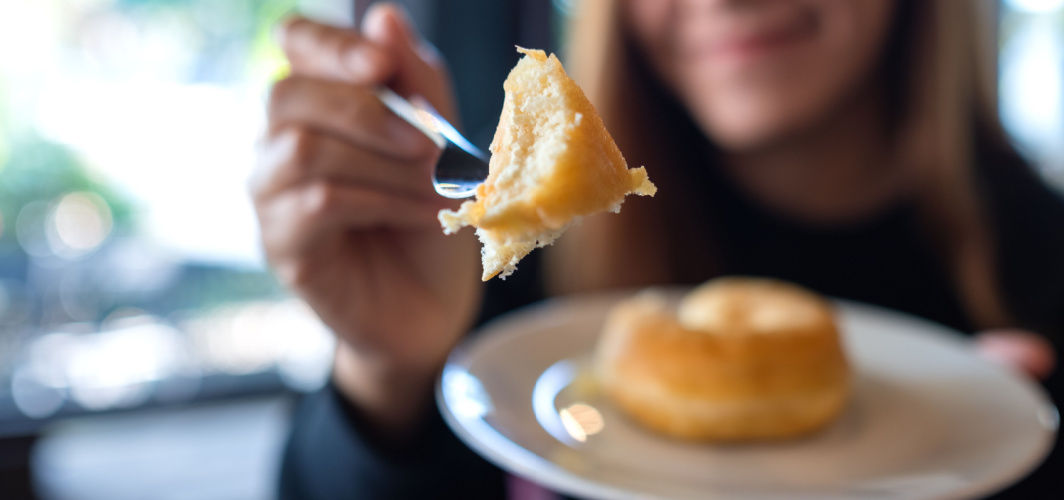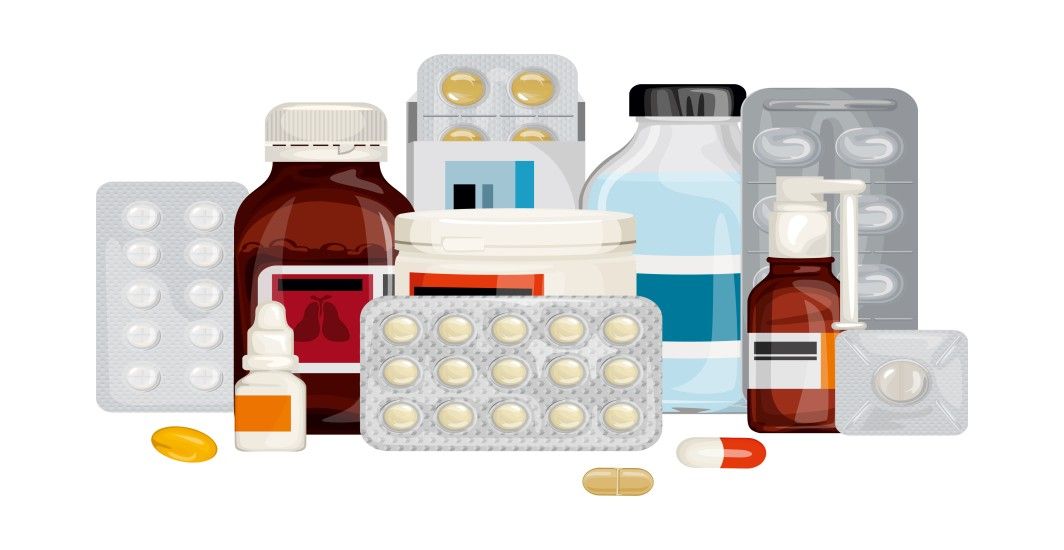Diabetes Management
How to Crush Sugar Cravings in Diabetes?
2 min read
By Apollo 24|7, Published on - 17 November 2023, Updated on - 22 February 2024
Share this article
0
0 like

Managing diabetes often involves a careful balance of monitoring blood sugar levels, making healthy food choices, and controlling sugar cravings. While it's perfectly normal to have occasional sweet tooth temptations, individuals with diabetes must navigate these cravings thoughtfully to maintain blood sugar control. Here are some effective strategies to crush sugar cravings in diabetes:
Choose Healthy Alternatives: When sugar cravings strike, opt for healthier alternatives. Fresh fruits, especially those with a lower glycemic index, can provide a sweet fix without causing rapid blood sugar spikes. Berries, apples, and pears are excellent choices.
Protein and Fibre: Including protein and fibre in your meals can help control sugar cravings. These nutrients promote a feeling of fullness and stabilise blood sugar. Incorporate foods like lean meats, legumes, and whole grains into your diet.
Hydration: Sometimes, thirst can be mistaken for hunger or sugar cravings. Stay well-hydrated throughout the day. Drinking water can help reduce the intensity of cravings and support overall health.
Regular Meals: Skipping meals can lead to drops in blood sugar, which can trigger cravings for sugary foods. Stick to a regular meal schedule with balanced portions to avoid extreme hunger.
Meal Planning: Plan your meals and snacks ahead of time. This can help you make healthier choices and avoid impulsive sugar indulgences. Choose diabetes-friendly snacks like unsalted nuts or Greek yoghurt.
Portion Control: If you decide to indulge in a sweet treat occasionally, practice portion control. A small, controlled serving can satisfy your craving without causing significant blood sugar fluctuations.
Sugar Substitutes: Sugar substitutes like stevia or erythritol can be used in moderation to sweeten foods and beverages without affecting blood sugar. Be cautious with artificial sweeteners and read labels to ensure they suit your condition.
Cinnamon: Some studies suggest that cinnamon may help stabilise blood sugar and reduce sugar cravings. Sprinkle a little cinnamon on your foods or drinks to enjoy its potential benefits.
Regular Physical Activity: Exercise not only helps with weight management but also reduces sugar cravings. Physical activity improves insulin sensitivity, making it easier for your body to manage blood sugar levels.
Consult a Dietitian: A registered dietitian specializing in diabetes can create a personalized meal plan that addresses your nutritional needs and helps manage sugar cravings effectively.
Conclusion
It's important to recognise that occasional indulgences are acceptable, but moderation is key. The above strategies can help you manage and reduce sugar cravings, making it easier to control blood sugar levels and maintain your overall well-being with diabetes. Always consult with your healthcare provider for personalised guidance in managing your condition.
Diabetes Management
Consult Top Diabetologists
View AllLeave Comment
Recommended for you

Diabetes Management
Medicines for Diabetes and their Side-effects
For medication-dependent people with diabetes, management involves understanding the impact of their prescription medicines, such as metformin, sulphonylureas, and DPP-4 inhibitors, as well as their possible side effects. Regularly tracking of health indicators using a reliable diabetes management app complements their medication in maintaining optimal blood sugar levels. With proper knowledge and tools, living well with diabetes is a definite possibility.
.jpg?tr=q-80)
Diabetes Management
Empowering Athletes with Diabetes: Strategies for Optimal Performance
Athletes with diabetes can optimise their performance by combining effective nutrition, insulin management, and diabetes education. Balancing carbohydrate intake, adjusting meal timing, staying hydrated, and monitoring blood glucose levels are vital steps towards better performance. Stay ahead in your game by learning how to manage diabetes effectively with the Apollo Super 6 programme.

Diabetes Management
Cataract Surgery with Diabetes: Considerations and Tips for Recovery
Facing cataract surgery while managing diabetes can seem overwhelming, but understanding the complexities can turn it into a manageable task. By considering thorough eye examinations, maintaining optimum blood sugar levels and staying informed about recovery processes, you can navigate this journey successfully.
Subscribe
Sign up for our free Health Library Daily Newsletter
Get doctor-approved health tips, news, and more.
Visual Stories

8 Fruits That are Incredibly Healthy for Diabetes
Tap to continue exploring
Recommended for you

Diabetes Management
Medicines for Diabetes and their Side-effects
For medication-dependent people with diabetes, management involves understanding the impact of their prescription medicines, such as metformin, sulphonylureas, and DPP-4 inhibitors, as well as their possible side effects. Regularly tracking of health indicators using a reliable diabetes management app complements their medication in maintaining optimal blood sugar levels. With proper knowledge and tools, living well with diabetes is a definite possibility.
.jpg?tr=q-80)
Diabetes Management
Empowering Athletes with Diabetes: Strategies for Optimal Performance
Athletes with diabetes can optimise their performance by combining effective nutrition, insulin management, and diabetes education. Balancing carbohydrate intake, adjusting meal timing, staying hydrated, and monitoring blood glucose levels are vital steps towards better performance. Stay ahead in your game by learning how to manage diabetes effectively with the Apollo Super 6 programme.

Diabetes Management
Cataract Surgery with Diabetes: Considerations and Tips for Recovery
Facing cataract surgery while managing diabetes can seem overwhelming, but understanding the complexities can turn it into a manageable task. By considering thorough eye examinations, maintaining optimum blood sugar levels and staying informed about recovery processes, you can navigate this journey successfully.


